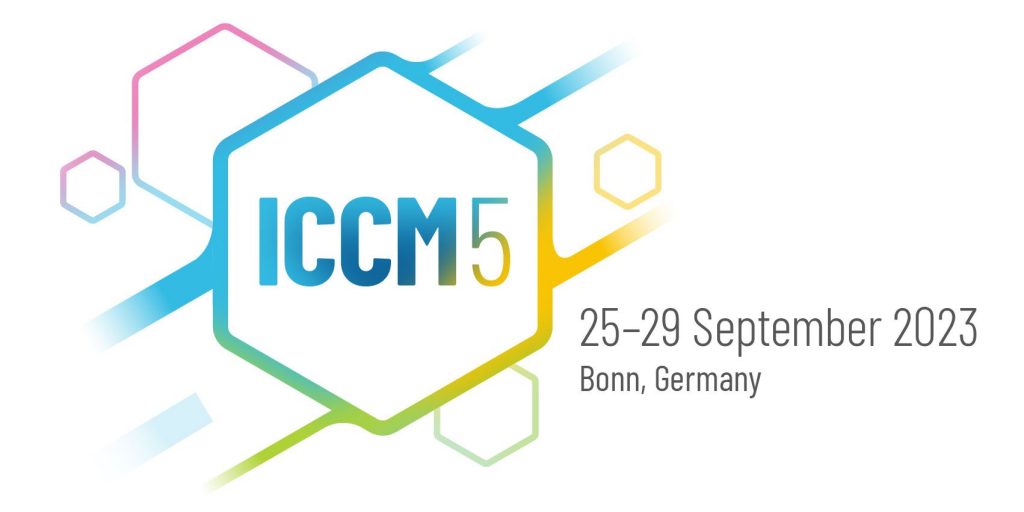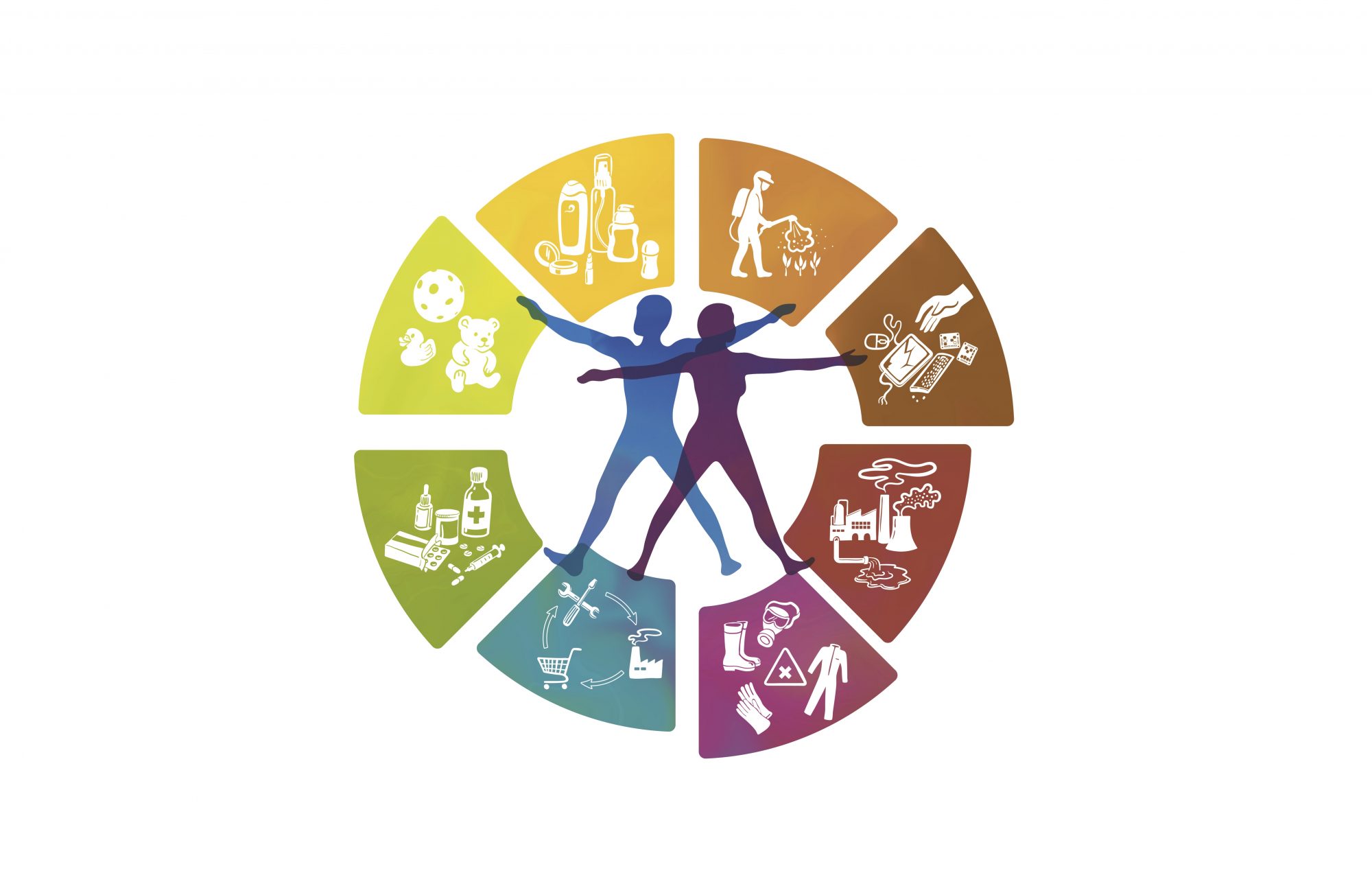
On September 25 th , 2023 the fifth session of the International Conference on Chemicals Management (ICCM5) opened in Bonn, Germany. The week-long conference witnessed significant strides in addressing gender issues within sustainable chemicals and waste management. Simultaneously, the conference served as a platform for various events and discussions focused on women and gender. This underscored the growing recognition of the crucial role that gender equality plays in achieving a safe, healthy, and sustainable future, including concerning matters relating to chemicals, waste and pollution.
Thanks to the engagement and advocacy work of various women’s organizations and gender experts, gender equality is now one principle of the new Global Framework on Chemicals – For a Planet Free of Harm from Chemicals and Waste that was agreed in Bonn. In addition, language on gender has been included in the Bonn Declaration, and a specific resolution on gender was adopted: “Mainstreaming a gender perspective and promoting gender equality and empowerment of all women and girls in chemicals and waste management,” which includes the development of a gender action plan until the sixth session of the conference (ICCM6, 2026).
MSP institute has been involved in the Strategic Approach to International Chemicals Management (SAICM) Beyond 2020 process since 2018, dedicating its efforts to shape the discussions from a gender perspective. The team has played a pivotal role in advancing gender advocacy and championing the inclusion of gender as a foundational pillar in the new framework. At ICCM5, MSP Institute assisted in the organization and facilitation of knowledge sharing at the “women and gender” information stand and the organization of the “women and gender at SAICM” group in order to broaden the resources of gender experts working within the framework. This brought together colleagues from various stakeholder groups, sectors and parts of the world and allowed coordination of efforts towards reaching the desired agreements. In this vein, MSP Institute also supported the participation of gender expert Mrinalini Rai, founder of Women4Biodiversity.
The team also worked on the creation and presentation of the gender resolution, which reflects the collective efforts of all stakeholders to prioritize gender considerations within the new framework. The team was also happy to support the German Federal Ministry for Environment, Nature Conservation and Nuclear Safety (BMUV) at the “High-Level Breakfast on Chemicals and Gender.”
MSP Institute was particularly pleased to organize a Side Event to launch the Gender and Chemicals Partnership – G&CP which had been under preparation for the better part of 2023. Governments, international organisations, women’s organisations and gender experts, and stakeholders from civil society, science and the private sector work together in the G&CP to promote gender equality and the empowerment of women and girls in chemicals management, and to support addressing the global pollution crisis and contributing to the implementation of the 2030 Agenda and the Beijing Declaration and Platform for Action. The partnership is now being developed further, guided by the interim Board which includes the Federal Environment Ministry of Germany, The Foreign Office of Mexico, UNITAR, and ZDCH. MSP Institute is happy to serve as the Secretariat of the G&CP.
Additionally, the above-mentioned resolution on gender was presented to the conference, and adopted by all stakeholders. The resolution, “requests the Secretariat, with the participation of interested stakeholders, to develop a gender action plan for consideration by the Conference at its next session to advance towards full, equal and meaningful participation by all women in decision-making, and to promote gender-responsive policies and mainstreaming a gender perspective in the implementation of the framework.” The inclusion of a gender action plan in the newly adopted Global Framework on Chemicals underscores stakeholders’ commitment to gender considerations as a gender action plan is a central, and proven, instrument for gender mainstreaming. This aspect of the resolution emphasizes the need for gender considerations to be made also on the national level. The resolution emphasizes this through the request for stakeholders, “to include information on progress made in mainstreaming a gender perspective in their reports to the Conference.” It also encourages all stakeholders to support interim actions towards the aforementioned goals, and “requests the Secretariat to foster collaboration, as appropriate, with secretariats of MEAs and with relevant UN agencies and programs, including UN-Women, OHCHR, and other relevant partners in the field of gender equality.”
Finally, integration of gender-specific language and considerations have been incorporated into two targets within the Global Framework on Chemicals – For a Planet Free of Harm from Chemicals and Waste. Notably, Target B5 underscores the imperative of developing and fostering education related to sustainable chemicals management with a focus on doing so while “taking into consideration a gender responsive approach.” Concurrently, Target B7 focuses on the necessity for the generating and collection of data, with a specific emphasis on data “disaggregated by sex.”
The Global Framework on Chemicals marks a significant stride in recognizing gender considerations, demonstrating an amplified commitment to inclusivity. Despite the intricacies of negotiations, the conference forged a more gender-responsive blueprint for the framework, laying the groundwork for its effective implementation.
In pursuit of consensus, challenges persist: Deliberations encountered limitations as regards more advanced gender related language, and the new framework refrains from embracing robust gender terminology. Terms such as “gender-responsive approaches” and “gender-disaggregated data” remained contentious. This shows that our path towards gender inclusivity is a dynamic one, shaped by discussions marked not only by different views but also by varying levels of expertise and knowledge. Geopolitical conflicts added further complexity, influencing conversations on critical issues like human rights and gender equality.
However, looking back to the achievements of ICCM5, MSP Institute sees the new Global Framework on Chemicals as a symbol of the future and the progress that is possible. Despite lack of unanimous endorsement for all gender considerations, a spotlight has been placed on the ongoing dialogue regarding gender equality in sustainable chemicals management. The path towards developing and implementing gender-responsive chemicals and waste management globally has come into view. MSP Institute remains encouraged and energized to build on the progress made at ICCM5 – together with colleagues from all parts of the world, all sectors, and all stakeholder groups.
Annex
Gender in the new Global Framework on Chemicals
I. Introduction
3. (…) Exposure to hazardous chemicals and waste throughout their supply chains and life cycles threatens human health and disproportionately impacts vulnerable and at-risk groups.[1]
D. Groups in vulnerable situations
- Exposure to chemicals and waste often disproportionately affects people in vulnerable situations, including children, youth, the elderly, persons with disabilities, women, workers, migrants, farmers, people living in poverty and Indigenous Peoples and local communities. The implementation of the framework should take these groups into consideration when protecting human health and the environment.
17. Women are agents of change and are essential to addressing the issues of chemicals and waste. The framework advances gender equality through their full and equal participation and gender inclusive approaches in all aspects of the implementation of the framework, including in decision-making
V. Strategic objectives and targets
Target B5 – By 2030, educational, training and public awareness programmes on chemical safety, sustainability, safer alternatives and benefit of reducing chemicals and waste risks have been developed and implemented, taking into consideration a gender responsive approach.
Target B7 – By 2030, Stakeholders generate to the extent possible, and make available comprehensive and accessible monitoring and surveillance data and information on concentrations and potential exposure sources of chemicals in humans (disaggregated by sex, age, region, other demographic factors, and other relevant health determinants as feasible), other biota and environmental media.
Issues of concern
I. Submission of information
- When an issue is nominated, the following information should be provided:
- Impacts on human health and/or the environment related to the issue, taking into account vulnerable and at-risk populations (especially women, children, youth and workers), biodiversity, ecosystems and available toxicological, ecotoxicological, environmental fate and behaviour, and exposure data;
Principles and approaches
- Beijing Declaration and Platform for Action, (1995)
- Conclusions of the Sixtieth Session of the Commission on the Status of Women, (2016)
- The following agreements, where applicable:
- Convention on the Elimination of All Forms of Discrimination Against Women, (1979);
Gender in the Bonn declaration
- Chemicals often have impacts on human health, particularly on women and children. Gender equality can support the sound management of chemicals and waste.
- We are determined to reach our vision of a planet free of harm from chemicals and waste for a safe, healthy and sustainable future. We therefore commit in a spirit of solidarity and partnership to implement the Global Framework on Chemicals – For a planet free of harm from chemicals and waste, to increase global ambition and action, including: Agreed ad ref.
(…)
- Protecting human health, particularly of women and children, with special attention to early childhood; Agreed ad ref.
Gender resolution
“Mainstreaming a Gender Perspective and Promoting Gender Equality and Empowerment of All Women and Girls in Chemicals and Waste Management”
Outcome: In its resolution (SAICM/ICCM.5/CRP.12), the Conference:
- requests the Secretariat, with the participation of interested stakeholders, to develop a gender action plan for consideration by the Conference at its next session to advance towards full, equal and meaningful participation by all women in decision-making, and to promote gender-responsive policies and mainstreaming a gender perspective in the implementation of the framework;
- encourages all stakeholders to support interim actions towards the aforementioned goals;
- requests the Secretariat to foster collaboration, as appropriate, with secretariats of MEAs and with relevant UN agencies and programmes, including UN-Women, OHCHR, and other relevant partners in the field of gender equality, in relation to the implementation of the framework; and
- invites all stakeholders to include information on progress made in mainstreaming a gender perspective in their reports to the Conference.
[1] Workers, farmers, women, children and youth, indigenous people, the elderly.
Tatiana Fett & Minu Hemmati, January 2024
Click here to download:
https://gender-chemicals.org/wp-content/uploads/2024/01/01.22.2024-Blog-Gender-at-ICCM5_pdf_2.pdf
